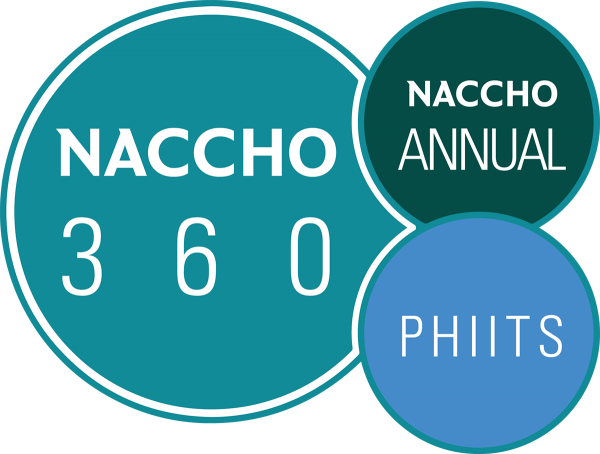Building Equity-Centered Community Data Ecosystems That Work for Everyone
 A session called Building Equity-Centered Community Data Ecosystems That Work for Everyone: Results from the Field on assembling and using data to address health inequities was presented at the National Association of County and City Health Officials - NACCHO 360 Annual.
A session called Building Equity-Centered Community Data Ecosystems That Work for Everyone: Results from the Field on assembling and using data to address health inequities was presented at the National Association of County and City Health Officials - NACCHO 360 Annual.
Presenter: Rachele Hendricks-Sturrup, DHSc, MSc, MA, Chief Data Governance Officer, NADPH
Authors:
o Ginger Zielinskie, MBA, Chief Strategy Officer, data.org
o Clare Tanner, PhD, Center Director, MPHI
o Lindsey Gottschalk, MSPH, Director of Strategic Partnerships, data.org
o Malaika Simmons, MSHE, PMP, Chief Operating Officer, NADPH
How can we ensure that community data ecosystems are accountable to the community and stay focused on improving health and wellbeing for ALL? Rising Equitable Community Data Ecosystems (RECoDE) was a project funded by the Robert Wood Johnson Foundation (RWJF) with the goal to develop recommendations, priorities, and an action plan to support the development of community data ecosystems that are equitable, accessible, and actionable by and for the communities they serve. Partners at data.org, National Alliance against Disparities in Patient Health (NADPH), and Data Across Sectors for Health (DASH) surveyed, interviewed, convened, and listened to nearly 500 people nationwide over the course of a year. Quantitative and qualitative data revealed that community data ecosystems are rapidly evolving, often to address social determinants of health. Significant challenges with implementation are reported in areas of sustainable funding and data practices that address inequity. The expressed concern from stakeholders was that if diverse communities and stakeholders are not a meaningful part of the initial data ecosystem design, their perspectives are too often overlooked. This session will present a summary of findings while engaging the audience in a solution-oriented discussion to answer the question posed above.
Session Description:
- Problem Statement: How can we ensure that community data ecosystems are accountable to the community and stay focused on improving health and wellbeing for ALL?
- Rising Equitable Community Data Ecosystems (RECoDE) was a project funded by the Robert Wood Johnson Foundation (RWJF) with the goal to develop recommendations, priorities, and an action plan to support the development of community data ecosystems that are equitable, accessible, and actionable by and for the communities they serve. Community data ecosystems are made up of the what, the who, and the how that enables data sharing and collaboration within a community. They include data infrastructure, tools, user capabilities, standards, and policies used to manage cross-organization data sharing.] Partners at data.org, National Alliance against Disparities in Patient Health (NADPH), and Data Across Sectors for Health (DASH) surveyed, interviewed, convened, and listened to nearly 500 people nationwide over the course of a year. This session will present a summary of findings while engaging the audience in a solution-oriented discussion to answer the question posed above.
- Methods: DASH implemented the survey in 2021 with distribution supported by partners of the project and their national networks. Three hundred fifteen (n=315) valid responses were received from across the country, predominantly representing public health, social services, and healthcare followed by more than 10 other sectors. Qualitative data collection included both key informant interviews (n=50), a nine-person health insurance industry member focus group, and five facilitated group conversations representing advocates and people with lived experience of inequity, policy makers, funders, information technology professionals, public health practitioners, and social service providers. A Learning Council provided additional input, culminating in a two-day convening with over 50 diverse participants, to make actionable recommendations.
- Conclusions: The survey data revealed significant alignment across sectors around a vision for data sharing, as well as significant challenges with implementation – especially in relation to sustainable funding and data practices that address inequity. Indeed, survey responses indicated that funders – rather than community – are driving the data sharing agenda. Comparing these results by sector revealed healthcare, public health, and social services equally feel data use to be driven by funder requirements, although there are differences in expressed capacity to invest in technology and skills development (with health care having greater capacity).
- Qualitative input shed further light on the marginalization of community voice throughout the data sharing process. The expressed concern is that if diverse communities and stakeholders are not a meaningful part of the initial data ecosystem design, their perspectives are too often overlooked. Multi-sector data sharing is rapidly evolving, but not necessarily accompanied by deliberate efforts to ensure that these models are co-created with community partners and evolve in ways that are responsive to and aligned with the needs of the people they serve.
- In synthesizing the multiple data inputs, the Learning Council and convened stakeholders concluded with recommendations that did not focus on technology or data standards (as expected), but rather on authentic power sharing and co-creation with community. Success, it was stated, starts with earning trust with community, ensuring co-design processes do not exclude participation, and investing in data literacy and addressing the digital divide. Some specific strategies were offered.
- Discussion: The findings of the RECoDE project are in line with recent toolkits, reports and guidance documents published by the Robert Wood Johnson Foundation, Actionable Intelligence for Social Policy, American Institutes for Research, and Urban Institute. We suspect that cultural shifts may be required to achieve implementation by some organizations that lack experience in, or appreciation for, incorporating the values and lived experience expertise of community members in technical conversations around and planning for multi-sector data sharing. This panel thus will be interactive – we will lead the audience in a discussion of key themes around how equity and accessibility can be embedded through trusted partnerships – and will highlight the potential impact of power sharing and co-designing data-driven health equity solutions with communities.
 About NACCHO: The National Association of County and City Health Officials (NACCHO) represents the nation’s nearly 3,000 local health departments. These city, county, metropolitan, district, and tribal departments work every day to protect and promote health and well-being for all people in their communities. For more information about NACCHO, please visit www.naccho.org.
About NACCHO: The National Association of County and City Health Officials (NACCHO) represents the nation’s nearly 3,000 local health departments. These city, county, metropolitan, district, and tribal departments work every day to protect and promote health and well-being for all people in their communities. For more information about NACCHO, please visit www.naccho.org.
RECENT POSTS



